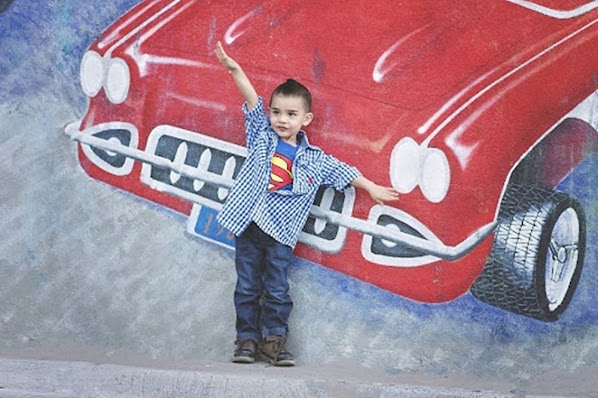Boost your child's self-confidence
Self-esteem can begin as early as childhood when children are cared for and nurtured constructively.
Parental acceptance and security, unconditional love, and admiration in childhood, adolescence, and adolescence contribute significantly to the development of self-esteem and self-confidence.
Therefore, parents should do their best to encourage their children to develop positive self-esteem.
Why is self-confidence important to a child's development?
Children of all ages learn new skills at an astonishing rate, and self-confidence is essential to mastering the same skills.
Therefore, the importance of children's self-esteem lies in:
- Confident children are not afraid to try new things and do their best.
- Confidence enables children to handle mistakes and encourages them to try again, even if they fail at first.
- It improves their prosocial behavior.
- Self-confidence is an important factor in good mental health.
Signs of high self-esteem in children
It can be clearly recognized when a child feels self-aware.
Signs of self-esteem and confidence in children include:
- Feel loved and accepted even when they make mistakes.
- Confidence and pride in all they can achieve.
- You create a positive mental image of yourself.
- Believe in yourself and your abilities.
Signs of low self-esteem in children
Signs of a child's lack of self-confidence and low self-esteem include the following:
- You always criticize yourself.
- They have the confidence that other kids are always better than them.
- Lack of self-confidence and feeling so disappointed that they allow others to treat them badly.
- They may have difficulty defending themselves.
- Think about failure instead of success.
- They doubt themselves and reduce their ability to perform their tasks.
Causes of low self-confidence in children
Some mistakes parents make that can cause children to lose confidence, such as:
Verbal and physical abuse
Yelling and spanking a child tells the child that their parents can't control their impulses, which undoubtedly damages their self-esteem.
It undermines a child's ability to have effective conversations, solve problems, and build self-confidence.
Make fun of children
Sarcasm shames children and makes it difficult for parents to communicate effectively with their children.
Likewise, when children are bullied in the community and lack conscious support for the problem at home, their self-esteem is negatively affected.
Suppress the child's emotions
Children may suppress their feelings for fear of criticizing or abusive parents.
Persistent guilt
Reminding children of their past mistakes is one way to teach them to hold a long-term grudge.
Shocked
Trauma such as physical, sexual or emotional abuse can lead to low self-esteem.
Name the child
Some labels parents give their children, such as "stupid" or "lazy," can damage a child's self-esteem.
Expect perfection
Make him feel that no matter what he does, he will never achieve his goals.
Health problems
Children with long-term illnesses, such as those with severe illness or physical disabilities, may experience low self-esteem.
By now, you may be wondering how to build your child's self-confidence.
Look no further, the solution is here.
How to develop children's self-confidence?
Confidence varies from child to child, and there are many ways to improve your child's confidence.
These methods are based on how parents raise their children and other influencers in their lives, such as teachers.
Tips for building your child's self-confidence
Follow some of these tips to build your child's self-confidence:
- Show unconditional love; children need to know that their parents love them no matter what, even if they are angry with them.
- Helping children learn new skills, such as music and sports
Best Phrases to Boost Your Child's Confidence
A good word is always the key to the heart, so kids need positive reinforcement phrases from parents, teachers, and other adults.
For example, these statements can be seen as one of the easiest ways to boost a child's self-confidence;
- I really enjoyed your company.
- You are special.
- I know you will do well in school today.
- You make me proud every day.
- Our family is stronger because you are a part of it.
- You are important in this world.
- Your hard work will surely pay off.
- I'm glad I became your teacher.
Children's Confidence Test
Measuring a child's self-confidence can be difficult because it requires a certain level of cognitive and language development for self-expression.
But one study shows that by age five, children are developing a sense of confidence and self-esteem.
For example, preschoolers can verbally report practices that they are good at, such as running.
The researchers also conducted a simple test using signs labeled "me" and "not me," which represented a range of good and bad words.
The results showed that both boys and girls, children, especially those with high self-confidence, tended to associate more good words than bad words.
Finally, if you're confused about how to build your child's confidence, remember that your support and positive behavior are key.
So try to be their role model and let your kids know you are their number one fan!
Read more
Narcissistic personality disorder | Abusive Narcissists
Anxiety disorders treatment | When will my mental storm calm down?
from
Kyan Teb




تعليقات
إرسال تعليق